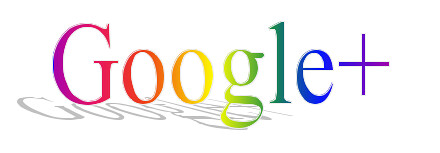 With over ten million users in just two weeks, and plenty of rave reviews, Google’s latest foray into social networking is off to a great start. Ever since it launched, I’ve spent most of my online time on Google+, and so far am very impressed from both the software engineering and business strategy perspectives. I think it’s on track to be a big success, so expect me to be talking about it a lot.
With over ten million users in just two weeks, and plenty of rave reviews, Google’s latest foray into social networking is off to a great start. Ever since it launched, I’ve spent most of my online time on Google+, and so far am very impressed from both the software engineering and business strategy perspectives. I think it’s on track to be a big success, so expect me to be talking about it a lot.
Unsurprisingly, I’ll start with diversity.
Vic Gundotra*, Google’s SVP of Social and the head guy in charge of Plus, said, â€We chose the initial seed very carefully. We wanted a lot of diversity, so we have people that represent over 42 of the world’s languages…”
— Jason Hiner, “Is Google+ About to transform the web?“, Between the lines
Well done! And multi-lingual support right out of the box is just one of the things that G+ is doing right on the diversity front. A few other examples:
- A passionate post by Google engineer Chee Chew reaching out to get more deaf people involved in giving feedback on video chat in Hangouts
- After heated discussions, spurred on in part by an excellent post from xkcd’s Randall Monroe, the gender field on the profile fields can now remain private**. Frances Haugen’s video and Liz Fong’s transcript have the details.
- As Pam Spaulding of Pam’s House Blend observes, LGBTQ bloggers have gotten on board quickly.
Kudos to Google on all of these fronts.
Alas, not all the news is good:
- When Vic and Brad and Larry and Sergey were carefully considering their initial seed users, they apparently didn’t think about gender. Paul Allen’s analyses suggest that about four days into the field test Google+ was over 75% male, and still remains 66% guys; and the most-followed users are almost all white as well as almost all male.
- Unlike in Diaspora, where gender is a text field, Google+ gender identities are limited to “male”, “female”, and “other”.
- While romack’s initial impressions from an accessibility perspective on No Eyes Needed are “better than expected“, there’s still tons of problems.
- The current policy about pseudonymous names has sparked charges of homophobia as well as disappointment from feminists, Second Lifers (1, 2, 3), and human rights advocates.
Of course, Google+ still just at the “limited field trial” stage, and is very much a work in progress. Since many of these things become steadily more difficult to change as you get more users and a bigger code base, now’s a crucial time for them to address diversity. So over the next few weeks, I’ll look at the various issues and what Google is — and isn’t — doing.
Stay tuned for more! Next installment: Why it matters.
jon
Check out the rest of the series: Why it matters, #nymwars!, A tale of two searches, The double bind of oppression, Anxious masculinity under threat, Still a Ways to Go, Booberday, Talk about a hostile environment, The Trend is in the Wrong Direction, and In chaos there is opportunity
Also posted on Google+
* who I briefly worked with at Microsoft years ago on the Hailstorm project … small world!
** if you’re not sure why this is a diversity issue, think about who is more likely to get harassed online — and whose opinions are more likely to be devalued because “they’re just a girl”
Leave a Reply